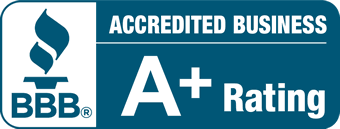Start a Business
Planning to start a business in Canada? There's a lot to think about before you do. Starting a business in Canada can be exciting as it marks the official beginning of a dream or idea you have. Having helped tens of thousands of people start a business, we understand the excitement, but we also understand the need to take a step back and learn how to get your business started in the right way.
Before you dash off to look for customers or start marketing your products, you know, the fun stuff, we recommend taking some time to understand all it takes to start a business in Canada. To make this easy, we have summarized all the essential points to consider below, so you can start your business having ticked all the right boxes.
10 Steps to Get Started

Step 1
Refine Your Idea
If you are wondering how to start a business in Canada, chances are, you have a business idea in mind. You might have seen a market opportunity, or you might even have tried it out and seen it work. Before formalizing your idea, try and refine it further so you have a solid understanding of how it will work and, more importantly, why it will work.

Here are some steps to take:
- Do market research: Market research identifies existing competitors to determine the success and failures of competitors. Doing market research will help you understand how similar businesses operate, including how they market, package themselves, and what type of customers they are targeting. More importantly, market research will tell you if your idea is viable (HINT: If there are competitors, it means there is a market, which is a good thing.)
- Define your “why”: Defining your “why” uncovers your true intentions for starting a business. Remember there are no “wrong” intentions; however, understanding your “why” will help you see where your priorities lie.
- Identify your target market: Your business will need a market if it is to survive and thrive. Try and identify a potential target market that would be excited to buy your products and services. A great way to do this is to ask your friends and family if they would buy what you have to offer. If they would, ask them why, and then use their answers to develop a target market persona.
Step 2
Write a Business Plan
A business plan summarizes your business idea and covers essential aspects like the business structure, who you plan to sell to, how you will reach them, and how you plan to fund it. This helps outline goals, strategies, and potential challenges, providing a roadmap for success. It also helps secure funding by demonstrating feasibility and profitability to investors.

The Importance of Writing a Business Plan
Although most people think a business plan is too formal or only for bigger businesses, we recommend not skipping it.
Ten Reasons Why You Need A Business Plan
- Concisely articulates your business strategy
- Provides a reference point when making critical decisions
- Helps iron out the kinks in your business idea
- Will help you foresee and avoid significant mistakes
- Proves the viability of your business
- Empowers you to set better objectives and benchmarks
- Effectively communicates your vision to potential partners, vendors, or financiers
- Can be used to secure funding
- Elevates your view and provides a big picture perspective
- Makes you accountable, so you stick to the plan
Business Plan Sections
Executive Summary
The executive summary highlights your business plan's main aspects, including a brief overview of your products and services, target market, and financial projections. Consider adding why you are starting the business and your vision to provide context to the rest of the plan. The Canadian government offers a business plan template to assist you.
Business Description and Structure
Describe your business in detail, highlighting factors like why your business is different (your competitive advantage), what your products and services are, and how you plan to succeed. Also, describe the business structure, whether registered or incorporated, offline or online.
Market Research and Competitive Analysis
Substantiate your competitive advantage claims by drawing a comparison with competitors when it comes to potential customers. Explain why you believe there is a market for your business and how you stack up against the competition. The more thorough and honest you are in this analysis, the better you will be prepared to compete effectively.
Management and Personnel
At this point, it might be just you, but that should not stop you from envisioning your business’s management and personnel structure. Who is in charge? Will you need more people to take on other responsibilities? Map out the entire chain of command.
Products and Services
In detail, describe your products and services and how they will meet demand. Also include any dependencies like vendors, raw materials, and licenses that might influence your ability to produce or supply the products and services.
Marketing and Sales
How will you reach your target market? How will you convince people to buy from you? Compile details like whether you will use word of mouth marketing or advertising, what steps you will take to create brand awareness, and whether you will focus more on direct sales or inbound marketing.
Financial Requirements and Projections
Answer questions like how much funding you will need, how long that funding will last, how much you expect to make in the first month or year, and whether you will seek outside funding. This section is perhaps the most important because it describes the financial viability of your business.
Step 3
Asses Your Finances
Starting a business in Canada will cost money, not just when setting it up but also until it turns a profit. It is, therefore, a good idea to consider your financial standing before starting the business. It is always recommended to complete a personal financial plan to help you to understand your expenses and requirements until you are in the position to begin drawing income from your startup.

Questions to ask yourself:
- Can you fund the business yourself, or do you need to borrow money?
- If you plan to leave your job to run the business, do you have enough saved up to support yourself until the company becomes profitable?
- How long can you support the business financially without turning a profit?
- Are you expecting to raise funding, and from whom?
An honest assessment of your financial standing will help you decide whether to move forward with setting up your business or if you need more time to shore up your finances.
Aside from helping you decide the way forward, a financial assessment will help you determine:
- Profitability: The level of profitability that will qualify your business as a success in your eyes. (HINT: This varies from business owner to business owner)
- Breakeven: That point where you consider your business as having returned your initial investment of time and money.
- Pricing: The prices that will help you meet your financial targets without jeopardizing your ability to compete effectively.
Step 4
Determine Your Business Structure
A business legal structure is not just a legal necessity; it will also have far-reaching implications on the amount of taxes you pay, your level of liability, business name protection, and more. Since the final decision on the business legal structure you pick rests with you, we recommend weighing all the pros and cons of each option before choosing.

Registering
Registering a business offers you a quick and affordable way of formalizing your business. It can be considered as an extension of the individual, with few additional legal or tax obligations.
You can register a business as a:
- Sole Proprietorship,
- General Partnership, or
- Tradename under a Corporation if already incorporated or part of your incorporation process
While registration has its upsides, it is also important to recognize some of its downsides.
The Facts on Registration
- One or more people can register
- New or Non-residents can register
- The business name has no name protection
- Personally liable for business (trade name excluded as under corporate umbrella)
- Filed under personal income tax (trade name excluded as under corporate umbrella)
- Registration may expire unless renewed
- Inflexible with making changes to business
Incorporating
Incorporating is the process of creating a new legal entity separate from yourself, complete with its own tax and legal obligations. While incorporating a business costs more, you will get more for the money you spend.
You can incorporate a business as a:
- Numbered corporation, or
- Named corporation
Incorporating comes with additional benefits, especially if you plan or expect your business to grow or take on outside funding or partners.
The Facts on Incorporation
- One or more people can incorporate
- 25% – Canadian Citizen/Permanent Resident except for British Columbia
- The business name has protection within its jurisdiction of incorporation
- The business has its own liability separate from owners
- The business taxed at the lowest tax rate in Canada
- Incorporation never expires or requires renewal
- Flexibility for any change to the business set-up
- Easier to raise capital and grow your business
To Register or to Incorporate?
We understand if you are a bit undecided on which one to pick; they both have compelling benefits. Although the final decision is yours, here are some helpful pointers we have seen help new business owners like yourself in the past:
- Are you comfortable taking on your business’s liability as a registered business, or would you rather limit your liabilities through a corporation?
- Do you plan to live on the profits, month to month (choose business registration) or reinvest a significant portion (choose incorporation)?
- Do you have adequate set-up funds to pay for the more expensive incorporation? If not, consider the less expensive business registration option.
- Can you handle the increased reporting obligations of a corporation, or would rather the simplicity of a registered business?
- Do you plan on building an enduring business that you can pass on or transfer? If so, incorporation may be the better option.
Step 5
Register or Incorporate your Business with Ontario Business Central
With over 30 years of experience and a track record of assisting over 300,000 businesses, our expertise ensures a smooth start. Clients receive personalized support from knowledgeable agents, streamlining the process of starting your business. Choosing OBC means starting and operating a business with confidence in the competitive marketplace.

Step 1: Pick a Business Legal Structure
Start the process by selecting a business legal structure for your business from the list below:
Other Incorporation options available
Step 2: Submit Your Business Name and Business Legal Structure
Select a business name and provide it together with the business ending (business legal structure). If you want to register a Numbered Corporation, you only need to give the business ending. When selecting a business name, consider using a unique name that does not, to your best knowledge, infringe on any trademarks or protected business names. For instance, avoid using well-known names like Amazon, Apple, Google, or Samsung, as these will be automatically rejected.
Step 3: Business Name Availability Confirmation
Before registering or incorporating your business, we offer a business name search for your provided name to ensure no other businesses, corporations or trademarks have an exact name. We will email you the search results to see any names that conflict with the name you have provided. If the name is unavailable, you can provide a different business name for search at no additional cost. If the name appears available, we will immediately proceed to register or the incorporation stage. For numbered corporations, the process is faster and easier, as the process can move forward without a business name search.
Step 4: Domain Search and Registration
As part of the business name availability search, you can also opt in for us to search your domain availability. We offer both .ca and .com You can choose none, one or both of them. By opting in to the domain search, we search the domain for availability at the same time we search your requested business name. If both are available, we proceed to register or incorporate the business and register your domain for a one year term. The domain registration comes with the Who Is protection so your information is not publicly available to those searching your domain name.
Same-Day Incorporation
At OBC, we do not believe you should wait weeks or even days for your Articles of Incorporation to be completed. That is why we offer same-day incorporation, Monday to Friday, for all Ontario, and Alberta orders submitted. Once your name search is complete, your incorporation will be finished within the same day, and we will send you an email confirming the same. In some jurisdictions same day service is not available. For other jurisdictions such as B.C. Manitoba and Saskatchewan, there are additional government fees associated with 24 hour service turnaround time with them. We include this option in each of the incorporation options. The federal incorporations are available within 24 hours of processing.
Receive Incorporation Documents
Once the registration or incorporation process is complete, we will send you the legal documents via email in PDF format. Once you receive the completed Articles of Incorporation via email, your business is officially incorporated, and you are now open for business!
Same-Day Registration
You have an empire to build and no time to waste. We get that, which is why we offer same-day registrations for eligible applications. If you send us your order prior to 3PM EST and your business name is available, we will process your registration within the same day.
Renewal, Amendment, or Cancellation
For business registrations, including sole proprietorship, partnerships, and tradename under a corporation, you must renew your business registration every five years. You can also opt to amend your registration, in which case you can amend the business address, individual address, or your business’s activity. If you wish to change the name or cease operations, we can help you cancel the original company and register a new one with the updated name or close the business altogether.
Benefits of Registering or Incorporating Your Business with OBC
Wealth of Experience
OBC has, to date, helped register or incorporate over 210,000 businesses. When you choose to start your business with us, you are choosing a trusted partner with a wealth of experience helping startups and entrepreneurs start their business journey the right way by taking you step by step.
30+ Years of Service
We have been helping business owners, entrepreneurs, and startups register or incorporate their businesses for the last 30+ years. When you think about it, we have helped register what are today some of the largest and most successful companies in Canada.
Online Registration
Forget about in-person and mail-in incorporations and business registrations; OBC offers you speed and convenience through a quick and transparent online application process. We process the entire application online so you can focus on running your business, not running around shuffling documents.
Same-Day Registration
You have an empire to build and no time to waste. We get that, which is why we offer same-day registrations in both Ontario and Alberta. BC, Manitoba and Saskatchewan may have additional fees associated with the incorporation process. The federal or Canada system does not provide the opportunity to register a small business.
Tax Registration - HST, Payroll, Import & Export Licence
OBC wants to make your business set up as easy as possible and to provide to you as many initial start up needs all in one place. You can opt in to including tax account set ups with us as part of your registration or incorporation beginning. Simply select the tax accounts required and this will be part of your business set up.
There may be municipal licences or registrations required depending on your business. We provide you with access to all municipal business permits required across Canada.
Renewal, Amendment, or Cancellation
For business registrations, including sole proprietorship, partnerships, and tradename under a corporation, you must renew your business registration every five years. You can also opt to have us complete the renewal, amendment in Ontario or cancellation in Ontario as well.
If you wish to amend your registration, you can amend the business address, individual address, or your business’s activity. If you wish to change the name or cease operations, we can help you cancel the original company and register a new one with the updated name or close the business altogether.
No Hidden Costs
The prices you see during the application process are all you will pay for your application. We do not believe in slipping in hidden fees; it is just not our style.
Multiple Business Types
Whatever type of business you want to register/incorporate, we have you covered. We offer business registrations for sole proprietorships, partnerships, and tradenames under a corporation and help incorporate named and numbered corporations including nonprofits and charities.
Broad Geographical Footprint
Our business registration and incorporation services cover Ontario, Alberta, British Columbia, Manitoba, and Saskatchewan. This broad footprint is handy for businesses that want to register regional offices in these areas.
A+ Better Business Bureau (BBB) Rating
We have consistently maintained an A+ BBB rating over the years because of our unwavering commitment to operate in a trustworthy manner and always resolve customer complaints expeditiously and conclusively. Nothing motivates us more than happy customers.
Step 6
Build Your Team
Unless you plan to work alone in your business, you need to consider how to set up your team and whether you will hire employees or contractors

Hiring Employees
If you plan to hire employees, you will need to implement formal employee structures like payroll, leave days, employee insurance, and official roles and titles. Even though you may not have employees yet, you should define all these requirements in anticipation of hiring employees, so you are prepared when you do start hiring. Also, remember that taking on employees means you are committing to paying them whether your business turns a profit or not. As such, weigh this option carefully, so it does not cripple your business through high fixed costs. If you are starting your business with employees ready to hit the ground, you can select for us to register the payroll account for you with the Canada Revenue Agency. This is not required unless you are ready to hire.
Contractors
Hiring contractors offers more flexibility, but it depends on the type of business you are starting and how reliant you are on specific workers. For example, if you start a restaurant business, you probably do not want your head chef on contract, as their sudden departure can compromise your business operations. At the same time, you can get away with hiring a digital marketer on contract as you can easily find a replacement if they leave suddenly. Contractors provide as much or little support as your business requires to help get the business off the ground. If someone exclusively works for your business and no other business, this person should be deemed an employee and a payroll tax account should be set up.
Step 7
Tax Considerations
Whether you choose a business registration or incorporation, each comes with tax obligations. As a new business owner, you need to anticipate taxes even before you start the business, so you know what to expect.

Business Registration Tax Considerations
- Sole Proprietorship: The business owner is expected to pay tax when tax is due for the year providing revenues minus expenses and after disposing a capital property or having a taxable capital gain in the year, when making Canada Pension Plan or Quebec Pension Plan (CPP/QPP) payments on self-employed revenues or pensionable earnings for the year, when accessing employment insurance (EI) special benefits for self-employed persons or on receiving a demand from the government to file a return.
- Partnership: All the above but as individual partners and to the limit of owned equity in the partnership.
Business Incorporation Tax Considerations
When you have an incorporated business, the corporation is required to file a separate tax return from the individual owner or owners. The owners are required to choose a fiscal year end for the corporation that is up to 12 months out from the incorporation date. It may be best to hire a tax specialist to assist you with this new tax system and to help you achieve the best possible tax situation available depending on your circumstance. Things to consider are as follows:
- Tax year and tax rates
- Tax filing deadlines and penalties
- How to get an income tax return
- Preparing and filing returns
- Where to send returns
- Eligible federal tax credits
- Eligible dividends
- Provincial and territorial corporate tax
Step 8
Market and Advertise your Business
Marketing and advertising give you the means to reach your target market and sell to them. Since these two activities determine whether you make money or not, you should prioritize them well before starting your business.

Three main areas to focus on:
Branding
Branding includes all activities related to distinguishing your business, products, and services as unique and memorable when compared to competitors.
Follow the five elements of effective branding:
- Brand position: What you do, who you cater to, and what makes you different relative to competitors
- Brand promise: What customers can expect from the brand always
- Brand personality: What the brand will be known for, internally and externally
- Brand story: What the overarching purpose of the brand is
- Brand associations: Physical artifacts like logos, typography, colours, tagline, and moto
Customer Acquisition
A customer acquisition strategy defines what you will do to generate interest in your business, attract prospects and convert them into customers. Since different businesses benefit from different approaches, consider picking a strategy that matches your target audience, products, and services.
Top Customer Acquisition Channels
- Organic search
- Cold outreach
- Word-of-mouth marketing
- Email marketing
- Direct traffic
- Direct mail
- Referrals
- Events
- Social media
- Paid search
- Paid social
Customer Satisfaction
As important as it is to get new customers, keeping your existing customers is even more crucial. A customer satisfaction strategy maps out how you will keep current customers happy and loyal.
Customer Satisfaction Tactics
- Use Customer Relationship Management (CRM) software to know your customers
- Install website analytics to understand customer behaviour and optimize accordingly
- Offer your services across different channels like web, social media, and mobile apps
- Consider live chat support
- Develop a knowledge base that answers commonly asked questions
- Listen to your customers’ complaints and act on them
- Run regular customer satisfaction surveys
- Value customer feedback
Step 9
Other Considerations
Before starting a business, it's crucial to consider things like funding and insurance. Securing adequate funding ensures financial stability for setup costs and growth, while obtaining the right insurance protects against unforeseen risks and liabilities. Exploring funding options and selecting appropriate insurance coverage sets a strong foundation for the business and mitigates financial risks.

Business Insurance
While not mandatory, business insurance protects your business from financial shocks related to lawsuits, cyber-attacks, and other risks. Business insurance is beneficial if you choose a registered business over an incorporated one, as it shields you from some of your business’s liabilities.
Some of the business insurance policies you can take out are:
- Commercial General Liability Insurance
- Professional Liability Insurance
- Product Liability Insurance
- Cyber Liability Insurance
Funding
Adequately funding your business can help propel it to early success. However, picking the right funding option can have a significant impact on your business.
Funding sources to consider:
- Personal savings, loans, and credit cards
- Business loans and credit
- Friends and family
- Angel investors
- Venture capital
- Crowdfunding
Although you can technically raise funds from any of these sources, some options like venture capital and debt can burden your business with considerable obligations. If possible, consider raising money from zero or low-obligation sources like personal savings and friends and family at the beginning.
Step 10
How to Start a Business FAQs
Starting a business inevitably brings forth many questions and uncertainties. It's important to familiarize yourself with potential challenges, ensuring you are ready to tackle any issues that may arise. From legal and financial considerations to operational and marketing strategies, having answers to these questions beforehand can significantly enhance the chances of success in the entrepreneurial journey.

How much capital do I need to start a business?
Startup capital varies from business to business. If you are starting a home business such as a freelance design business, you can start with just a few hundred dollars. However, if you plan to sell a physical product, you will need more capital to cover manufacturing and logistics. In general, work out how much you need to run the business for one month, then multiply that by between six and twelve months to give you a ballpark figure of how much you will need. A new and exciting way to get your name out there is to do an elevator pitch.
Can I change my business name?
If you register a business, you will need to complete a new Sole Proprietorship, General Partnership or Trade Name under your existing corporation. If you incorporate, you can change the name of the corporation at any time or add a secondary business name under the corporation.
What happens if my new business does not work?
If your business does not make a profit and runs out of funds, you have two options: pivot or close. Pivoting means raising more funds and switching to a different business or business model either in the same market or a different market. In this case, you can amend your business registration to reflect a change in business activities. On the other hand, you can apply to cancel the registration or dissolve the corporation and close the business altogether.
How do I increase the chances that my chosen business name is available?
In our experience, the names that have the best chance of passing the name search are:
- Made-up/fancy/vanity names (e.g., Google, Nike, Pepsi),
- Foreign names (e.g., Hyundai, Samsung, Audi),
- Combined names (e.g., Facebook, HubSpot, American Express)
While there is no guarantee that your chosen business name will be available, following these three rules or combining them can give you better results.
Which is the best business to start?
The best business to start is one you have experience in, are passionate about, or are highly skilled in. For example, if you are an accountant, starting an accounting or related business is a good fit. Of course, this does not mean that an accountant cannot open a restaurant; it just means that on a graduated scale, starting a business you are most skilled or experienced in makes the most sense.
Can I start a business with no money?
Many successful businesses began with no capital, but what they lacked in money, they made up for in time and effort. If you have no startup capital, you can use your skills to offer a service at a fee under your own personal name. In a sense, doing so would be equivalent to starting a business. When it comes to formalizing your business, you will need funds to register or incorporate your business, and by that time, you will hopefully have made some money. There are all kinds of opportunities available from doing something on the ground yourself like helping neighbours who need groceries, errands run or assistance in their home to linking up to a number of freelance organizations such as upwork if you have a skillset like content writing or graphic design.
How do I protect my business idea from being stolen?
If your business idea is an invention or some other IP, you can patent, trademark, or copyright it so no one else can use it. However, if your idea does not fall under these categories, the best you can do is incorporate a business, which will protect the business name. Also, keep in mind that ideas are only valuable to the people who believe in them (in this case, you), and they require hard work to actualize.
Do I need to consult a lawyer before starting a business?
No, you do not. If you have a business idea, all you need to do is visit our business registration or incorporation portal, complete the application form, and pay the fees. It really is that simple. You can have a fully registered or incorporated business and be open for business within the same day!
Ontario Business Central is here to help you get your business off the ground with either registration or incorporation and we also offer a tonne of additional services to help you along your entrepreneurial journey such as domain and tax account set ups, assistance to change and grow your business, support to cancel or dissolve when necessary. Our business is to always help you with yours. Our attentive, experienced staff are here to help with any business question you may have.
LET'S GET STARTED!
Choose which start-up is best for you
If you're not sure which one is best for you, contact us for more details.
Why Use Ontario Business Central?

We have been in the business of helping others start their businesses since 1992
Startups have been helped by OBC

An A+ rating year after year with the Better Business Bureau

